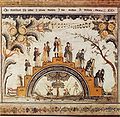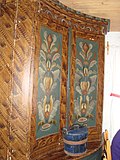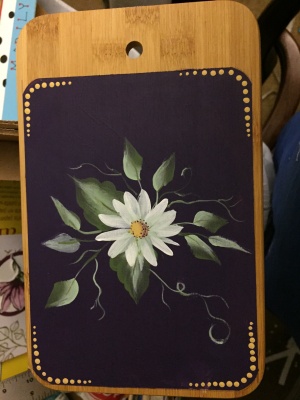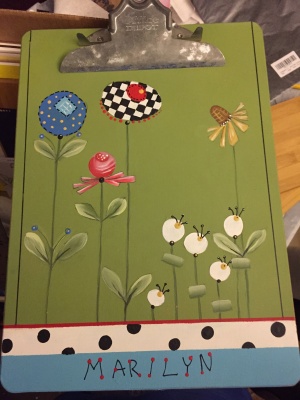Difference between revisions of "AY Honors/Tole Painting/Answer Key"
(Marked this version for translation) |
Jomegat bot (talk | contribs) m (Jomegat bot moved page AY Honor Tole Painting to AY Honor Tole Painting Answer Key: Bot: Moved page) |
(No difference)
| |
Revision as of 05:02, 19 December 2020
1. What is tole painting?
The word tole means "painted enameled or lacquered tinplate used to make decorative domestic objects." Today it is used as a category of folk art and decorative painting, typically on metal or wood used for household items such as utensils chairs, chests, toy boxes, tables, etc.
2. Explain the difference between decorative art and fine art.
In the strictest sense, Fine Art is considered a visual object with no functional purpose except to be admired and contemplated as an aesthetic object. Decorative Art, however, is also visual and aesthetically pleasing but serves a useful function such as a piece of furniture, tableware, textiles and so on.
3. Name the types of surfaces tole painting is found on.
Wood, metal, glass, walls, any surface which will hold paint.
4. Name three European countries which have tole painting heritage. List what it is called in those countries.
Norway - Rosemaling
Sweden - Kurbits
France – Tole Peinte
Germany - Bauernmalerei
England – Roses and Castles
Russia – Khokhloma, Gzhel, Zhostovo, Mezen, Gorodet
Switzerland – Bauernmalerei
5. Identify what types of objects are usually tole painted.
Furniture and tools.
6. Find five pictures of tole painted objects, one in each of the listed categories:
a. Rosemaling
b. Kurbits
c. Japanning
d. Russian Black Lacquer
e. American Tole
7. What types of paint are used in tole painting?
The paint appropriate for the surface to be painted and for how the item is to be used.
8. Make a sample sheet/board of basic decorative painting strokes. Include Comma Stroke (right and left), Tear Drop (Slider Leaf Stroke), U Stroke (C Stroke), Flat Stroke and S Stroke. At least two of the strokes should use two paints side loaded on the brush.
It is best to practice with a flat and a round brush. For the flat a ½ inch or larger is better for practice. Make up a practice sheet for each Pathfinder.














